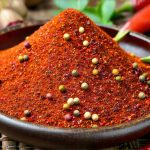Many people rely on caffeine to kickstart their day, enhance focus, or simply enjoy a comforting beverage. However, for individuals with sensitive stomachs, even small amounts of caffeine can trigger unpleasant symptoms like heartburn, bloating, nausea, and diarrhea. This isn’t necessarily about an allergy to caffeine itself – it’s more often related to how caffeine interacts with the digestive system and exacerbates existing sensitivities or conditions. Understanding these interactions is the first step toward managing your caffeine intake and minimizing discomfort. It requires a degree of self-awareness and potentially, some lifestyle adjustments.
The challenge lies in the fact that caffeine isn’t just found in coffee; it’s present in tea, soda, energy drinks, chocolate, and even certain medications. Furthermore, individual sensitivities vary widely. What might be a tolerable amount for one person could cause significant distress for another. This article will explore the reasons why caffeine can upset sensitive stomachs, offer practical strategies to avoid or mitigate these effects, and discuss alternative options to help you maintain energy levels without compromising your digestive health. We’ll focus on proactive steps you can take to feel better and enjoy a more comfortable lifestyle.
Understanding the Connection: Caffeine & Digestive Distress
Caffeine’s impact on the digestive system is multifaceted. It doesn’t directly “irritate” the stomach in most cases, but it does influence several processes that can contribute to discomfort for those prone to sensitivity. One key mechanism is its stimulation of gastric acid production. Increased acidity can worsen symptoms of heartburn and acid reflux, particularly if you already have conditions like gastroesophageal reflux disease (GERD). Caffeine also speeds up the digestive process – specifically peristalsis, the muscle contractions that move food through your system. This accelerated movement can lead to diarrhea or a feeling of urgency.
Beyond acidity and speed, caffeine affects the lower esophageal sphincter (LES), the muscular valve that prevents stomach acid from flowing back into the esophagus. Caffeine relaxes this sphincter, making it easier for acid reflux to occur. This is why many people with GERD find caffeine exacerbates their symptoms. The impact isn’t just about the amount of caffeine consumed; timing matters too. Drinking caffeinated beverages on an empty stomach can amplify these effects, as there’s less food to buffer the acidity. It’s also important to remember that different brewing methods and types of coffee/tea influence caffeine content significantly – a cold brew typically has higher levels than drip coffee, for example.
Finally, some individuals experience digestive upset due to additives in caffeinated beverages rather than the caffeine itself. Milk, sugar, artificial sweeteners, and even chocolate (often added to coffee) can all contribute to bloating, gas, or other issues if you have sensitivities to those ingredients. Identifying these secondary triggers is crucial for pinpointing the source of your discomfort. Keeping a food diary, noting both what you consume and how you feel afterward, can be incredibly helpful in this regard. Understanding triggers behind discomfort is key.
Strategies for Reducing Caffeine Intake
Reducing caffeine intake doesn’t necessarily mean complete elimination – although that might be necessary for some. It’s about finding a level that allows you to function comfortably without triggering digestive issues. A gradual approach is almost always more successful than going “cold turkey,” which can lead to withdrawal symptoms like headaches, fatigue, and irritability. Here are some steps you can take:
- Track Your Consumption: For a week or two, meticulously record everything you drink and eat that contains caffeine. Include amounts as accurately as possible (e.g., “8oz coffee,” “one 12oz soda”). This provides a baseline for identifying your triggers and quantifying your intake.
- Substitute Strategically: Replace some of your caffeinated beverages with decaffeinated alternatives or herbal teas. Decaf coffee still retains some flavor, while herbal teas offer soothing properties that can actually aid digestion. Consider options like peppermint, chamomile, or ginger tea.
- Dilute Your Drinks: If you enjoy the taste of coffee or tea but struggle with the caffeine content, try diluting your beverage with water or milk (if tolerated). This reduces the overall concentration of caffeine per serving.
It’s also important to be mindful of hidden sources of caffeine. Read labels carefully on medications, over-the-counter pain relievers, and even some seemingly innocuous products. Gradually decreasing your intake over several weeks allows your body to adjust more comfortably. Don’t underestimate the power of hydration; drinking plenty of water can help mitigate withdrawal symptoms and support overall digestive health. If you’re struggling with sensitive gut issues, small changes make a big difference.
Decaffeinated Options & Alternatives
Decaffeination processes vary, so understand that “decaf” doesn’t mean zero caffeine. Most decaf coffee still contains a small amount (typically around 2-15mg per cup), but it’s significantly less than regular coffee. Look for water-processed decaf options, as they avoid the use of chemical solvents. Herbal teas are an excellent alternative—many offer stimulating properties without any caffeine at all. Rooibos tea, for instance, is naturally caffeine-free and rich in antioxidants.
Beyond beverages, consider other ways to boost your energy levels. Prioritize getting adequate sleep (7-9 hours per night), maintaining a balanced diet with regular meals, and incorporating physical activity into your routine. These lifestyle factors can have a profound impact on your overall well-being and reduce your reliance on caffeine. If you’re accustomed to the ritual of a coffee break, try substituting it with a mindful moment of relaxation or a short walk outdoors. A routine that nurtures your body can be transformative.
Managing Symptoms & Seeking Support
Even with careful reduction strategies, some individuals may still experience occasional digestive upset. Having a plan for managing these symptoms can provide peace of mind. Over-the-counter remedies like antacids or acid reducers might offer temporary relief from heartburn, but they shouldn’t be relied upon as a long-term solution. Focus on identifying and avoiding your personal triggers.
If your digestive issues are severe or persistent, it’s essential to consult with a healthcare professional. They can help determine if underlying conditions like IBS, GERD, or food sensitivities are contributing to your symptoms and recommend appropriate treatment options. Do not self-diagnose. A registered dietitian can also provide personalized guidance on dietary modifications and caffeine reduction strategies tailored to your specific needs. Remember that managing a sensitive stomach is often about finding what works best for you, and seeking professional support can be invaluable in this process. Living peacefully with digestive issues is possible, even when bloating feels overwhelming. It’s important to know foods to avoid as well, and consider supporting digestive healing after illness.


















